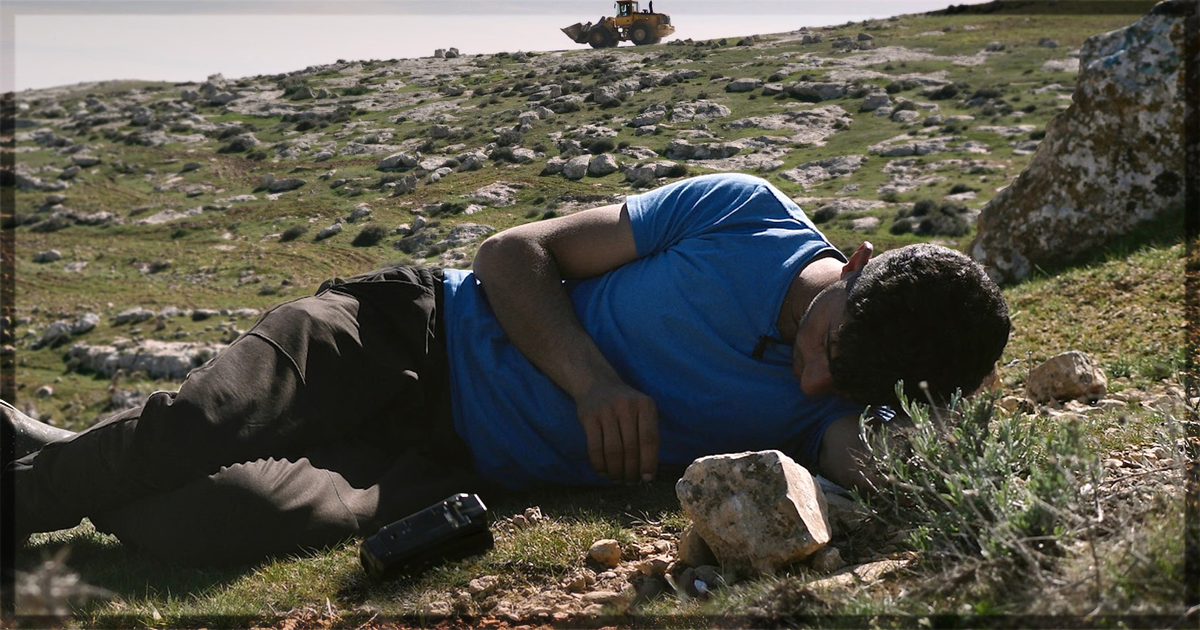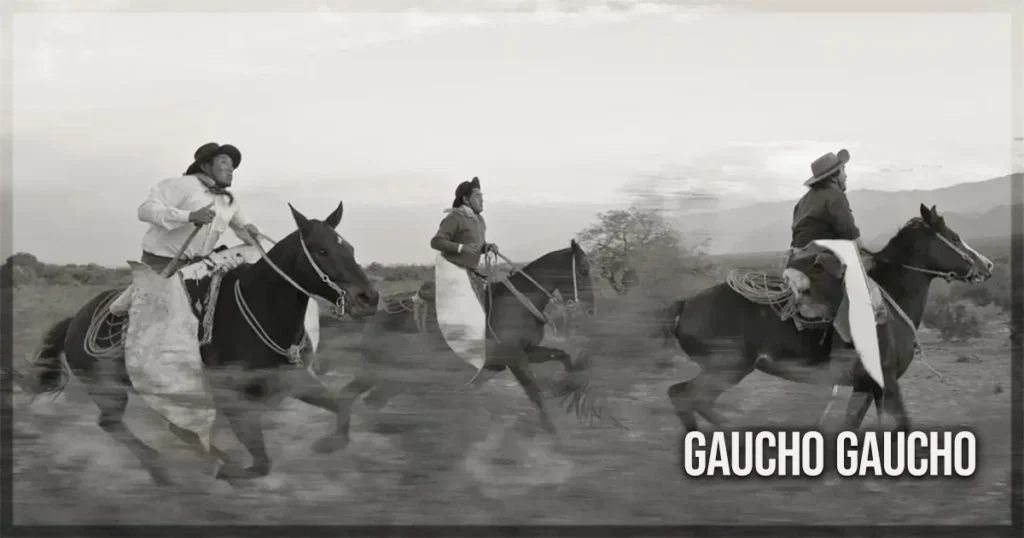There is a clear point of view in No Other Land: what is happening in the West Bank is wrong. Frankly it’s all the more powerful for its righteous commitment to this line. But just because something is an unusual, well-made and remarkable documentary doesn’t make it a crucial piece of art, not to be missed under any circumstances. That requires moments of truth captured on film, something that only hard work and courage can provide. In No Other Land these moments involve live fire from Israeli soldiers that the filmmakers are in the middle of. It’s horrible to watch, but documentaries like No Other Land make it vividly clear that it’s harder to live, and the very least the rest of us can do is bear witness.
Masafer Yatta is a small network of Palestinian villages in the West Bank with a couple thousand residents. Over the course of the documentary, which filmed between 2020 and 2023 before being completed in October 2023, a great many of these villagers were displaced, house by house, to make way for a firing range for the Israeli army.
There are four credited writer-director-editors. Rachel Szor, who was also the (excellent) cinematographer and who never appears onscreen in any way. Hamdan Ballal, who appears the least and when he does tends to argue with Yuval Abraham, a Jewish journalist who is able to travel freely from his home city, where even the lanes on the highway are segregated. Some years ago the fourth writer-director, Basel Adra, lived in this town after he earned his law degree, but thanks to prejudice and despite his fluency in Hebrew and English was only able to find work as a construction day labourer. This means he returned to Masafer Yatta, except there is no work in Masafer Yatta, meaning Basel has all the time in the world to spend on his phone, becoming a self-taught journalist and documenting what happens in the villages straight onto social media. His family survives because his father Nasser is the local ‘fuel guy,’ with a small petrol pump connected to the family home. Nasser is also the leader of the local group of activists who protest the behaviours of the Israeli army and Israeli settlers who encroach on their land, sometimes with great violence. Unusually for Palestine, the villages in Masafer Yatta welcome outside activists, such as the ones who joined forces with the locals to make this film.
The core of No Other Land is how, on a weekly basis, the army walks into the villages in Masafer Yatta, selects a house, and gives its residents approximately an hour to rescue their belongings before their home is bulldozed to the ground. None of the Palestinians are armed, and all of the Israelis are, usually with assault rifles or machine guns. One afternoon, during one of these clearances, a squabble over a generator turns violent when the soldiers start shooting, leaving the son of the house, Harun, paralyzed from the shoulders down. It’s so shocking it’s hard to fathom, and it’s all captured on Basel’s phone, as is the aftermath. Because their home is gone, Harun’s mother has no choice but to care for her helpless adult son in a cave. Thanks to the generator they have power, and a television screwed into the rock, but it remains a cave. Without money, or permission to travel for medical care, there is nothing further that anyone can do. And sometimes Israeli settlements are built nearby, on the sewerage and electricity grids, which the filmmakers allow to speak for itself.
But poor Harun and his mother’s sufferings are the subplot to the surprising friendship that strikes up between Yuval and Basel. Clever and kind Basel, trying hard to give himself a purpose, but one that doesn’t involve resentments of Yuval’s ability to escape the West Bank. His repeated willingness to run towards danger, holding up his phone as his only weapon while shouting that he has a press card and is filming, is nearly unbelievable. Yuval’s courage is less dramatic but just as vital as he travels constantly back and forth to shine a light on what Basel is enduring. Of course, when Yuval speaks to the Israeli media about his opinions on what he’s seen in Masafer Yatta, he puts himself in the line of fire in a different way. There’s an unusual alignment and camaraderie between the two men which they acknowledge without making a big deal out of it; instead they try very hard to be kind to each other. They tease each other, smoke hookah and discuss their ambitions, but their friendship – much less the professional working relationship that led to the making of this film – is not on equal footing, and they both know it. Until Basel has the ability to come and go as he pleases, to exercise his profession, to live in a house that’s not at risk of being torn down every minute, how can he possibly accept Yuval has the unquestioned right to do the same? And what can Yuval do to prevent his unearned and unjustifiable privileges from driving a wedge between them?
Centering this relationship in the middle of everything else that is the movie’s smartest choice, because people everywhere in the world can relate to a slightly awkward and uneven friendship. The fact this friendship includes attempts to prevent the Israeli army from destroying the local elementary school, which includes being assaulted by young soldiers holding machine guns, emphasizes the importance of friendship and solidarity. The footage is an excellent and organic-feeling mix of dangerous phone footage shot on the hoof, beautifully framed scenes of life in the village, and reportage-style pieces of historical news reports and old home movies. Some of the discussions have clearly been staged for the camera’s benefit, but the interplay and the feelings expressed do not feel in the least forced. This mix of materials and the excellent context for Basel’s work means there is ample time to reflect on the churning horror depicted here, and how it has gotten worse since the film was finished. No Other Land is one of the most vitally important documentaries in years. It is impossible to watch this movie and not relate to the suffering it depicts. It is a devastating achievement.
Learn more about No Other Land at the Antipode Films website for the title.
You might also like…
‘Gaucho Gaucho’ Review: An Intensely Immersive Documentary


